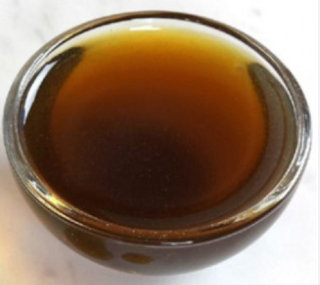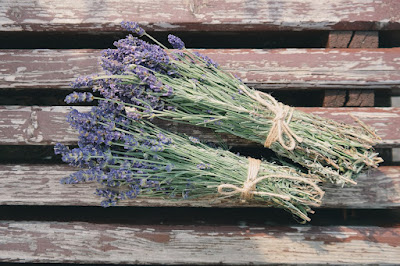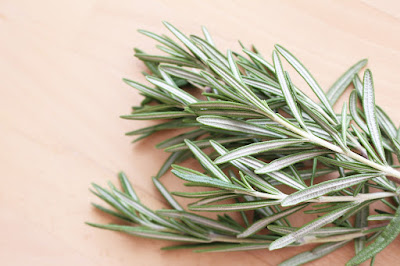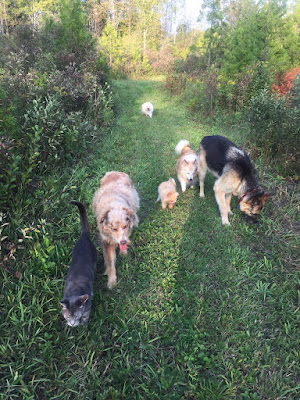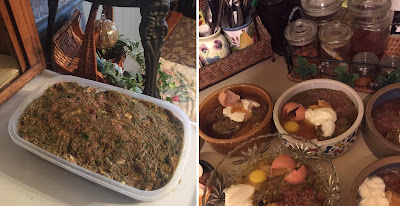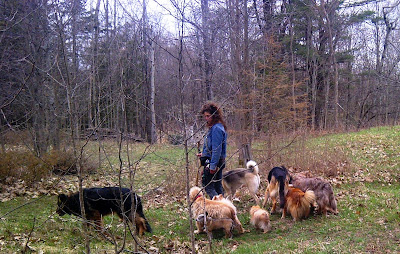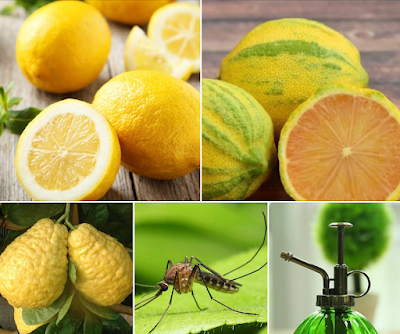A Natural Approach to Insect Prevention and Recipes for Natural, Herbal Flea, Tick, Mosquito Repellent Sprays, Rubs, and Dips for Dogs and Cats
★ 9 min read
In
this article:
- Natural Insect Repellent Spray Recipes
- Fresh Lemon Spray
- Apple Cider Vinegar or Coconut Sap Vinegar, Almond or Garlic Oil, Citrus Spray
- Organic Neem Oil Spray, Repellent, Dip or Rub
- Witch Hazel, Clove, Citrus Spray
- Lavender and Tea Tree Oil Spray
- Rosemary Essential Oil Spray
- Coconut Oil, Lemongrass, Peppermint Spray or Spot-On
- Rosemary Herb Flea Spray
- Four Thieves Herbal Spray
- Natural Rubs to Kill Fleas and Lice
- Neem Oil Rub to Kill Fleas and Lice, Discourage Ticks
- Natural Rinse to Kill Fleas
- ACV or CSV, Tea Tree Oil, Aloe Vera Juice Dip or Rinse
- Rosemary Herbs Flea Dip or Rinse
- Natural Insect Repellent Balms and Hydrosols
- Natural Collar Drops and Spot on Drops
- Foods That Help Naturally Repel Insects
- Cautions and Important Notes
- A Layered Natural Approach Is Your Dog and Cat's Best Defence
Conventional insect and parasite preventatives are very harmful to your dog and cat's short and long-term health. To learn more about the harmful effects of conventional preventatives go here.
1.0 Natural Insect Repellent Spray Recipes
1.1 Fresh
Lemon Spray Repellent
for cats and dogs - use to discourage mosquitoes
Fresh lemons and water
make an excellent non-toxic easy to make mosquito spray with a refreshing
scent.
For the fresh lemon spray recipe:
- Go to this article.
1.2 Apple
Cider Vinegar or Coconut Sap Vinegar, Almond or Garlic Oil, Citrus Spray Repellent
for dogs only - use to discourage fleas, ticks, mosquitoes
You'll Need
Apple cider vinegar, or;
Distilled water.
Sweet almond oil, or lemon oil, or garlic oil .
Fresh lemon.
Spray bottle.
Preparation
Pour
the following ingredients in a spray bottle:
2 cups of apple cider vinegar or coconut sap vinegar.
2 tbs sweet almond oil or:
2 tbs *lemon oil (see recipe below), or;
2 tbs *garlic oil (see recipe below).
2 tbs of fresh squeezed lemon juice.
Store in a cool dark cupboard.
*See the lemon oil and garlic oil recipes just below.
- Lemon is natural insect repellent.
- Almond oil and garlic contain sulfur. Sulfur repels many types of insects including fleas and mosquitoes.
- Almond oil and garlic contain sulfur. Sulfur repels many types of insects including fleas and mosquitoes.
To Use
- Shake the spray bottle.
- Spritz your dog’s fur.
- Apply one time to several times per day as needed.
Lemon Oil Recipe
2 lemons.
1 cup of olive oil.
Preparation
- Peel the rind from the lemons.
- Place oil and lemon rinds in a sauce pan.
- Place on a very low heat for 20 minutes.
- Allow to cool.
- Strain and pour into a bottle.The lemon oil is ready for use.
Garlic Oil Recipe
For treating ear infections, making insect repellent, etc.
You'll Need:
A small, clean wide-mouth glass jar.
Cheesecloth or other breathable clean cloth.
Elastic band or string.
Amber, brown or blue storage bottle.
Garlic cloves.
Organic extra virgin olive oil.
Preparation:
A small, clean wide-mouth glass jar.
Cheesecloth or other breathable clean cloth.
Elastic band or string.
Amber, brown or blue storage bottle.
Garlic cloves.
Organic extra virgin olive oil.
Preparation:
- Remove the outer skin from the garlic cloves.
- Cut the garlic cloves into thin slices.
- Place the sliced garlic in the jar, leave a little space at the top of the jar empty.
- Pour the olive oil into the jar, making sure to add enough oil to completely cover the garlic - make sure that you leave some empty space at the top of the jar.
- Cover the top of the jar with a few layers of cheesecloth.
- Stretch the cheesecloth so it lays flat on top of the lid - if the cloth touches the oil it will absorb the oil and make a mess.
- Secure the cloth with string or an elastic band.
- Let the garlic/oil filled jar sit top cure, in a warm location for 10 days.
- Once the curing period is over, separate the garlic from the oil by straining the oil into an amber, brown or blue storage bottle.
- Store the garlic oil in the refrigerator.
1.3 Organic Neem
Oil Spray Repellent, Dip or Rub
for dogs, cats, puppies and kittens - use to discourage fleas, lice, ticks, mosquitoes
½ ounce (15 ml) organic neem oil (dogs).
1/4 ounce (7.5 ml) organic neem oil (cats).
If you want to make a stronger repellent, dip or rub, use 1 ounce (30 ml) of neem oil.
½ ounce (15 ml) organic glycerine or organic Castile soap.
2 cups (0.5 litre) distilled water, warmed-up.
Mixing bowl.
Spray bottle.
Preparation
If you want to make a stronger repellent, dip or rub, use 1 ounce (30 ml) of neem oil.
½ ounce (15 ml) organic glycerine or organic Castile soap.
2 cups (0.5 litre) distilled water, warmed-up.
Mixing bowl.
Spray bottle.
Preparation
- Pour the glycerine soap and warm water into the bowl, mix well.
- Slowly add the 1neem oil, mixing as you add the neem to the soap/water mixture.
- Pour the resulting liquid into a spray bottle.
- Store in a cool, dark cupboard.
- Shake the bottle.
- Spritz on fur.
- Apply one time to several times per day as needed.
To Help Treat Flea or Lice Infestation
- Use the recipe as a dip or rinse.
- Pour the solution onto fur and skin, massage thoroughly into fur and skin.
- Don't rinse off, leave on for 15 to 30 minutes.
- Then rinse off.
- Apply one time to several times per day as needed.
1.4 Witch
Hazel, Clove, Citrus Spray Repellent
for dogs - use to discourage fleas, ticks, mosquitoes
Distilled water.
Witch hazel.
Clove essential oil.
Citrus essential oil.
Rosemary essential oil.
Spray bottle.
Preparation
- Fill an 8 ounce spray bottle with 4 oz distilled water.
- Add enough witch hazel to almost fill the balance of the spray bottle - leave a few inches of empty space at the top of the bottle.
- Add essential oils:
- 10 drops of clove essential oil.
- 10 drops of *rosemary essential oil.
- 10 drops of citrus (lemon, orange or grapefruit) essential oil .
- Store in a cool, dark cupboard.
To Use
- Shake the bottle.
- Spritz your dog’s fur;
- Don’t soak your dog fur with this spray.
- Just lightly mist your dog with the spray.
- Apply one time to two times per day as needed.
Caution
- Clove oil is a uterine stimulant and therefore should NOT be used on or around pregnant dogs.
- Rosemary essential oil should NOT be used one or around dogs (or cats) that are prone to seizure conditions.
1.5 Lavender and Tea Tree Oil Spray Repellent
for dogs - to discourage fleas, ticks, mosquitoes
for dogs - to discourage fleas, ticks, mosquitoes
You'll Need
Distilled water.
Lavender essential oilTea tree oil
Spray bottle.
Preparation
- Fill a spray bottle with 1 cup of distilled water.
- Add essential oils:
- 4 drops of Tea Tree Oil.
- 4 drops of Lavender Essential Oil.
- Store in a cool, dark cupboard.
To Use
- Shake the bottle.
- Spritz your dog’s fur.
- Don’t soak your dog’s fur with this spray.
- Just lightly mist your dog with the spray.
- Apply one time to two times per day as needed.
You'll Need
Distilled water.
Rosemary essential oilSpray bottle.
Preparation
- Fill a spray bottle with 1 cup of distilled water.
- Add essential oil:
- 8 drops of rosemary essential oil.
- Store in a cool, dark cupboard.
- Shake the bottle.
- Spritz your dog or cat's fur.
- Don’t soak fur with this spray.
- Just lightly mist your dog or cat with the spray.
- Apply one time to two times per day as needed.
Caution
- Rosemary essential oil should NOT be used one or around dogs or cats that are prone to seizure conditions.
1.7 Coconut Oil, Peppermint, Lemon Grass Spray or Spot-On Repellent
for cats and dogs - discourage fleas and mosquitoes
for cats and dogs - discourage fleas and mosquitoes
You'll Need
Coconut oil, cold pressed, unrefined, organic (for the spot on), or;
Coconut, fractionated liquid for the spray.
Lemongrass essential oilPeppermint essential oil
Small spray bottle (for the spray).
Small glass jar or dropper bottle (for the spot-on).
Preparation
- Place 4 tbs coconut oil in a glass bowl.
- Add the essential oil:
- 6 drops of lemongrass essential oil.
- 2 drops of peppermint essential oil.
- Pour or spoon in small spray bottle or glass jar.
- Store in a cool, dark cupboard.
- Shake the bottle.
- Spritz your
dog or cat's fur.
- Massage into fur.
- Apply one time per day as needed.
To Use The Spot-on
- Apply a drop to the: neck, shoulders, middle of back, base of tail, and on each paw.
- Apply one time per day as needed.
1.8 Rosemary
Herb Flea Spray
for kittens and puppies, dogs and cats - to discourage and treat flea infestations
- Go to this article.
1.9 Four
Thieves Vinegar - Extra Strength Insect Repellent Spray
for dogs - to discourage fleas, ticks, mosquitoes
for dogs - to discourage fleas, ticks, mosquitoes
Mason jar.
Spray bottle.
Preparation
- Add the following ingredients to the mason jar:
- 2 cups Apple Cider Vinegar or Coconut Sap Vinegar
- Dry herbs:
- 4 tbsp dry lavender
- 4 tbsp dry peppermint
- 4 tbsp sage
- 4 tbsp thyme
- If you want to use fresh herbs, use 3/4 cup finely chopped for each herb, instead of 4 tbsp.
- 5 large cloves or 8 small cloves of garlic.
- Crush the garlic before adding it to the mason jar.
- Mix the ingredients in the jar.
- Seal the mason jar with the lid.
- Place the jar in a cool, dark location and allow to steep (sit), for 2 weeks up to a maximum of 6 weeks. Shake the jar every few days.
- Then strain the herbs from the liquid. Discard the herbs.
- Store the mason jar of steeped liquid in the refrigerator.
To Use
- Add enough distilled water to the spray bottle, to half fill the bottle.
- Fill the remaining half of the bottle with the steeped herbal liquid.
- Don't use the steeped liquid undiluted.
- Shake the bottle.
- Spritz your dog's fur.
- Apply one time to two times per day as needed.
The original Four Thieves Vinegar Recipe – the one above is a
variation, is a recipe from the 1600s. The
famous French aromatherapy doctor, Jean Valnet, has two recipes in his book. He
claims corpse robbers who were caught red-handed in the area around Toulouse in
1628-1631 revealed the original recipe. His story is the more credible of the
many one can find. Given the virulence and deadliness of the plague, the judges
were astonished by the indifference of the thieves to contagion. Valnet quotes
the archives of the Parliament of Toulouse...
"During the Great Plague, four robbers were convicted of going to the
houses of plague victims, strangling them in their beds and then looting their
dwellings. For this, they were condemned to be burned at the stake, and in
order to have their sentence mitigated, they revealed their secret
preservative, after which they were hanged."
2.0 Natural Rubs to Kill Fleas and Lice
2.1 Neem
Oil Rub to Kill Fleas and Lice, Discourage Ticks
- Mix 1 part neem oil with 10 parts almond oil or coconut oil.
Recipe for Cats
- Mix 1 part neem oil with 20 parts almond oil or coconut oil.
- Place a few drops in your hand.
- Rub your palms together.
- The run your hands through your dog or cat’s fur.
- Repeat use daily as needed, one times per day until the flea or lice infestation is resolved.
3.0 Natural Rinse to Kill Fleas
for dogs only
The following topical treatment kills adult
fleas and helps soothe irritates skin.
You'll Need:
Distilled water.
Aloe vera juice, inner fillet only.
8 ounce glass bottle.
Preparation
- Pour the water into the glass bottle.
- Add 10 drops of tea tree oil.
- Add 1 tablespoon of aloe vera juice.
- Shake the bottle.
To Use
- Massage the herbal mixture into your dog's fur and skin.
- Wait 6 to 10 minutes, then rinse your dog.
- Use daily as needed until the flea infestation is resolved.
3.2 Rosemary
Herb Dip or Rinse
for kittens and puppies, dogs and cats - to discourage and treat flea infestations4.0 Natural Insect Repellent Balms and Hydrosols
for kittens, cat, puppies and dogs
for kittens, cat, puppies and dogs
Insect repelling balm recipes:
- Go to this article.
5.0 Natural Collar
Drops and Spot-on Drops
for cats and dogs
for cats and dogs
7.0 Cautions and Important Notes
7.1 When Using Essential Oils, Monitor Your Dog and Cat
Symptoms can include:
- Lack of coordination.
- Loss of use of legs.
- Paralysis.
- Seizures.
- Protect your dog and cat's eyes from the spray.
7.3 When Applying the Spray to your Dog or Cat's Face:
- Spray the palm of your hand with the solution.
- Then rub your hands gently over your animal's nose, top of the head, behind the ears, etc.
7.4 Daily Application of Sprays
- Sprays should be re-applied 1 to 3 times a day when additional protection is required.
- If your dog or cat goes swimming, gets wet in the rain etc. you will need to re-apply the spray.
7.5 Rosemary
- Do not use rosemary essential oils or rosemary herb on a dog or cat prone to seizures.
- Do NOT use rosemary on Shelties (Shetland Sheepdogs) and Collies.
7.6 Implement A Layered Approach
- Using a topical repellent on it's own is not an effective approach to preventing insects and insect borne diseases.
- Its important to implement a natural layered approach tailored to suit your dog and cat's individual circumstances.
8.0 A Layered Natural Approach Is Your Dog and Cat's Best Defence
on a trail walk with some of my dogs and one of my cats
Your dog and cat’s best defence
against insects and insect-borne disease is a layered natural approach tailored to suit your animal's situation.
Topical insect repellent should never be
used on its own with the expectation that it can prevent insect bites and
insect-borne disease.
Topical insect repellent aids should be used as part of a layered, natural, holistic prevention plan tailored to suit your individual dog or cat's circumstances.
A natural layered approach to insect and parasite and associated disease prevention, should always include:
- Species appropriate raw or gently cooked and fresh food diet tailored to suit the individual animal's situation.
- Toxin-free personal health protocol.
- Natural topical repellent selected to suit your individual dog or cat's circumstances during insect (e.g. tick season, etc.)
- Daily visual and physical inspection for ticks on your dog or cat.
- This should be done at least 2x per day during tick season.
- Limit unnecessary exposure, e.g.,
- Stay away from areas that are known to be badly infested with ticks.
Holistic Diet, Nutrition, Wellness Services Tailored to Your Individual Dog and Cat
For information about my holistic diet, nutrition and wellness services, visit my holistic wellness services page.
Maintain good health | Address acute and chronic health issues | Pre and post surgery support and recovery
My holistic wellness services are available worldwide via video consultation.
🌎 USA | Canada | UK | Europe | Australia | New Zealand | Asia | South and Central America | Africa | UAE
📱FaceTime | Facebook | Skype | WhatsApp
To set-up your holistic wellness consultation get in-touch via email, go to my contact me page.
Holistic Behavioral Services for Your Dog
For information about my holistic behavioral services, visit my holistic behavioral services page.
For dogs of all ages, sizes and breeds.
My behavioral services are available worldwide via video consultation.
🌎 USA | Canada | UK | Europe | Australia | New Zealand | Asia | South and Central America | Africa | UAE
📱FaceTime | Facebook | Skype | WhatsApp
To set-up your holistic behavioral session get in-touch via email, go to my contact me page.
Affiliations to Companies
✓ None.
✓ I don't sell food, supplements, or other products.
✓ I'm not aligned with any companies.
Article and graphics by Karen Rosenfeld.




